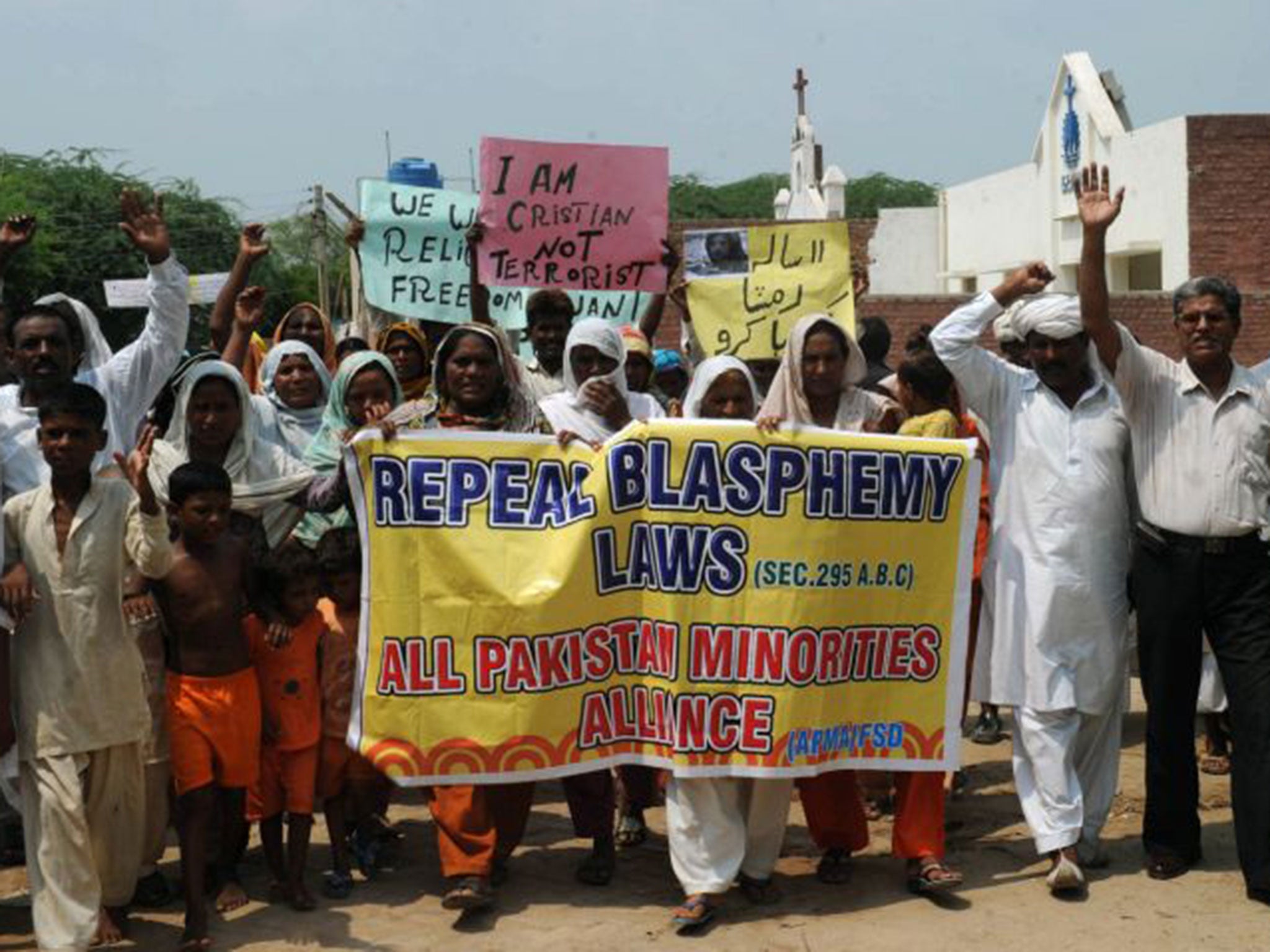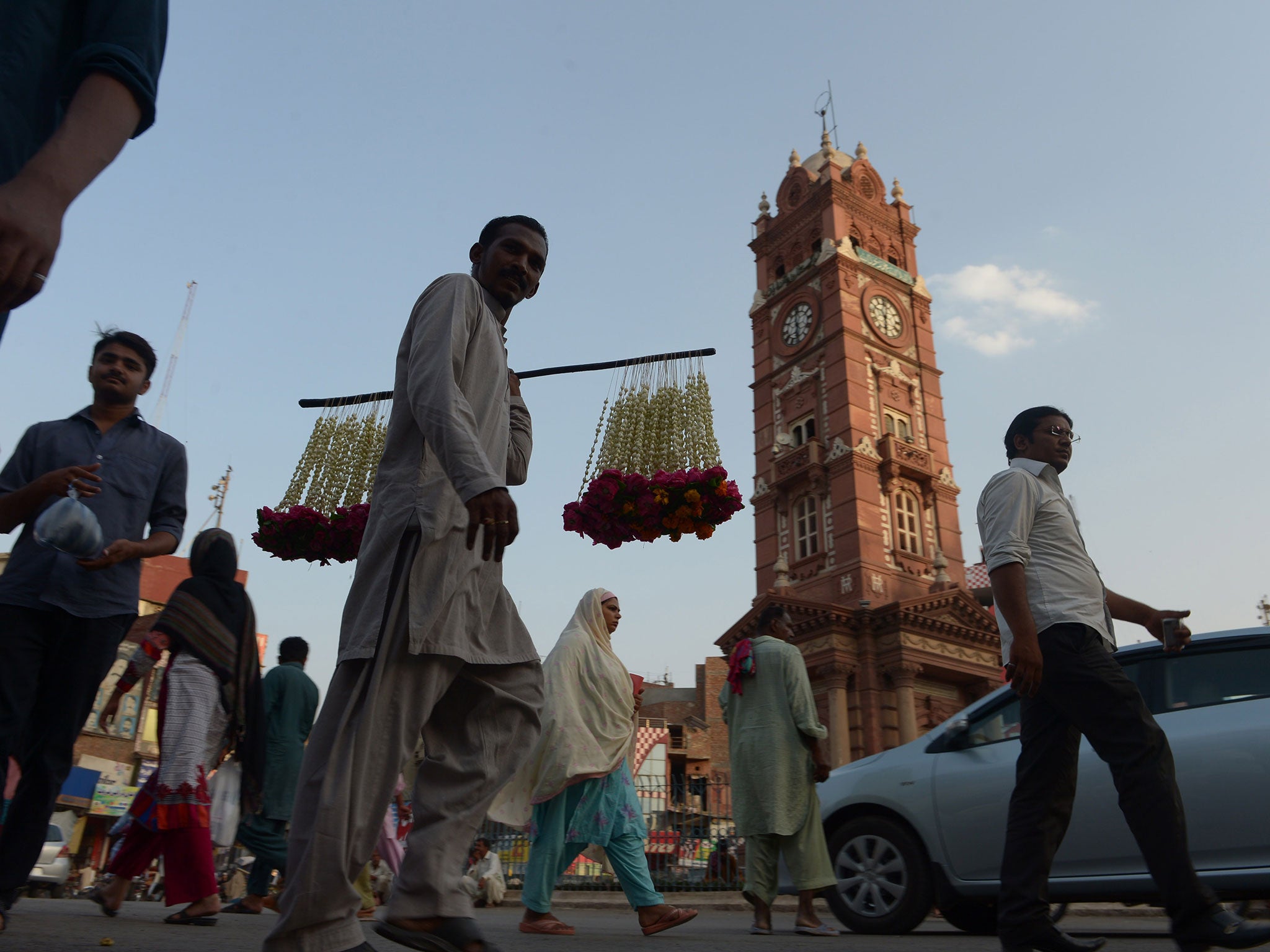Pakistan blasphemy laws increasingly misused to settle petty disputes against Christians
Measures to punish people who insult Islam are being abused to discriminate against Christians. Rizwan Syed reports from Lahore

When Shafiq Masih visits his relatives, he risks running into a mob. A Christian, convicted and acquitted under Pakistan’s notorious blasphemy laws after a dispute with a neighbour, Mr Masih lives in fear.
He fled his home in Faisalabad, where he said he was almost lynched by a crowd that was whipped into a murderous frenzy by a local imam. He now lives in Lahore with his wife and seven children in Youhanabad, an impoverished district that is home to many of the city’s Christians.
Blasphemy laws which can punish insulting Islam with death are now regarded as sacrosanct in Pakistan. They are, critics claim, a means to persecute minority faiths and settle petty grievances, over how much butter was sold at a shop or, as in Mr Masih’s case, an electricity bill.
“The people who knew me, they [often] come from Faisalabad to Lahore,” Mr Masih said. “They are drivers and labourers. They can be dangerous for me.”
Sewage and stacks of rubbish are strewn across the street where Mr Masih maintains a welding business, a 10-minute drive from the family home. Mr Masih said he was accused of blasphemy in Faisalabad in 1998 after his Muslim neighbour refused to contribute to the electricity bill charged on their shared meter. After an altercation, Mr Masih said a local imam accused him of blasphemy. The accusation was relayed, Mr Masid said, by the mosque’s speakers. He was then arrested by police and charged with blasphemy. He claims his neighbour levelled the charge.
“They beat me with [their] hands, they beat me [with] the things that they found on the spot,” Mr Masih said of the mob that had almost lynched him. “I don’t want to think about them.”

He was convicted by Faisalabad’s district court, spending three years in jail before being acquitted by the same court in 2001. He said he does not allow his children to play with other children in case his story is revealed. “If they mix up with other children it is quite likely that someone would know about our hideout,” he said. “In that case, they we will be in danger,” added Mr Masih’s wife, Najma Shafiq.
Until 1986 only 15 blasphemy cases had been prosecuted in Pakistan, according to Centre for Research and Security Studies (CRSS) figures. But after the legal scope of blasphemy was expanded to include offences such as insulting the Prophet Mohamed – for which the death penalty was introduced under the military ruler Zia-ul-Haq – cases surged. So, too, argue campaign groups, did the misuse of the law.
In October, Pakistan’s highest court upheld a death sentence for the killer of the governor of Punjab, who had called for reform of the blasphemy law. Salman Taseer was shot dead by a bodyguard, Mumtaz Qadri, in 2011, after he had sought a presidential pardon for Asia Bibi, a Christian woman accused of blasphemy. Since 1990, at least 65 people have died in cases linked to blasphemy in Pakistan.
Pakistan’s Christian population is claimed to face much of the alleged abuse of blasphemy laws. “Christians face a lot of discrimination in society and the bigotry against them often ends up using the vehicle of blasphemy allegations motivated either by designs to take over land or by personal enmity or ego,” Sundas Hoorain, a lawyer who has worked on blasphemy cases, said.
Rubina Bibi, a Christian, and her family have also been forced into hiding by blasphemy laws. Now in Islamabad, she was forced to flee Ali Pur Chattha, a town in Punjab province, after being accused of blasphemy five years ago by a bystander observing her argument with a local woman who had allegedly sold her substandard butter.
Now working as a house maid, Ms Bibi spent months in prison with her one-year-old baby while the case was being decided, she said. Eventually freed, she was left bitter by the whole experience. She blamed the people of Pakistan for not allowing Christians like her to enjoy the right to free speech.
Join our commenting forum
Join thought-provoking conversations, follow other Independent readers and see their replies
Comments
Bookmark popover
Removed from bookmarks